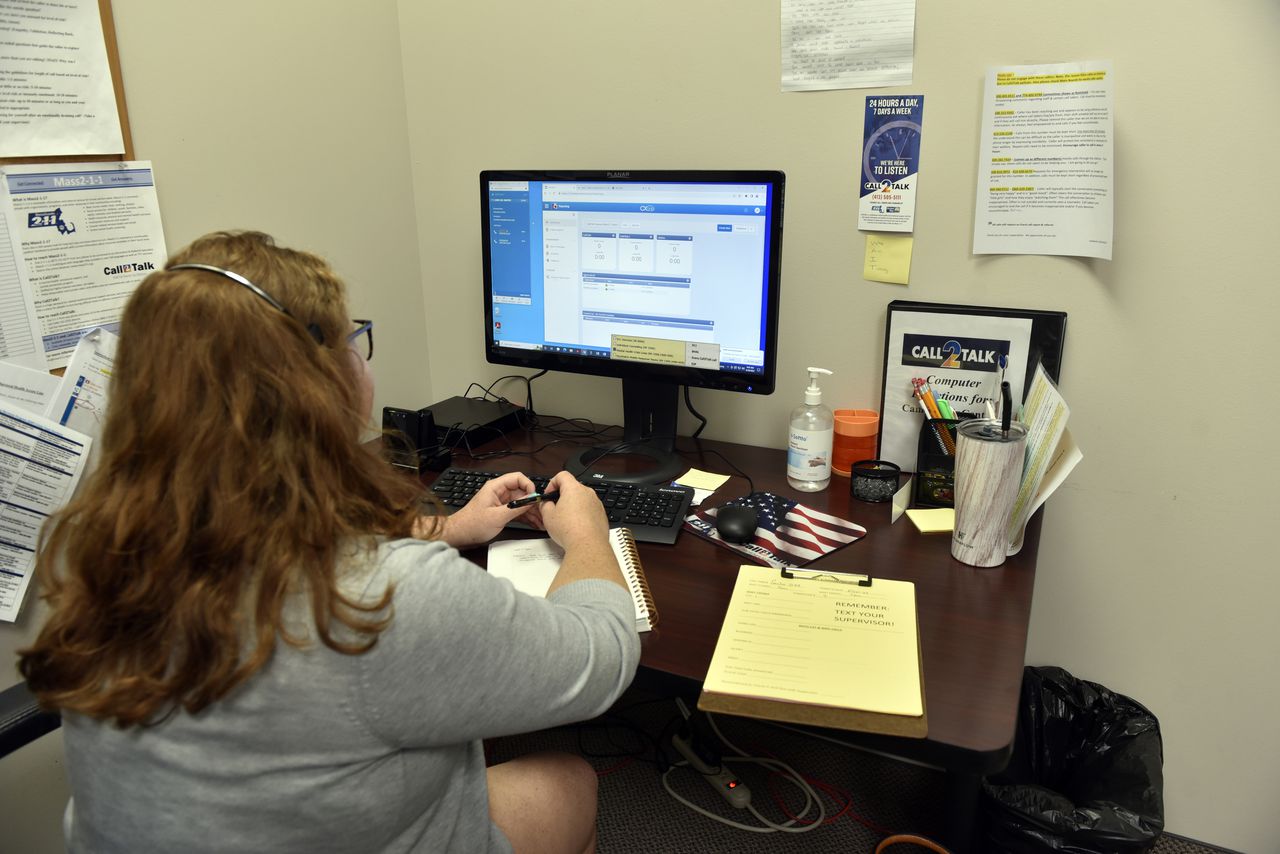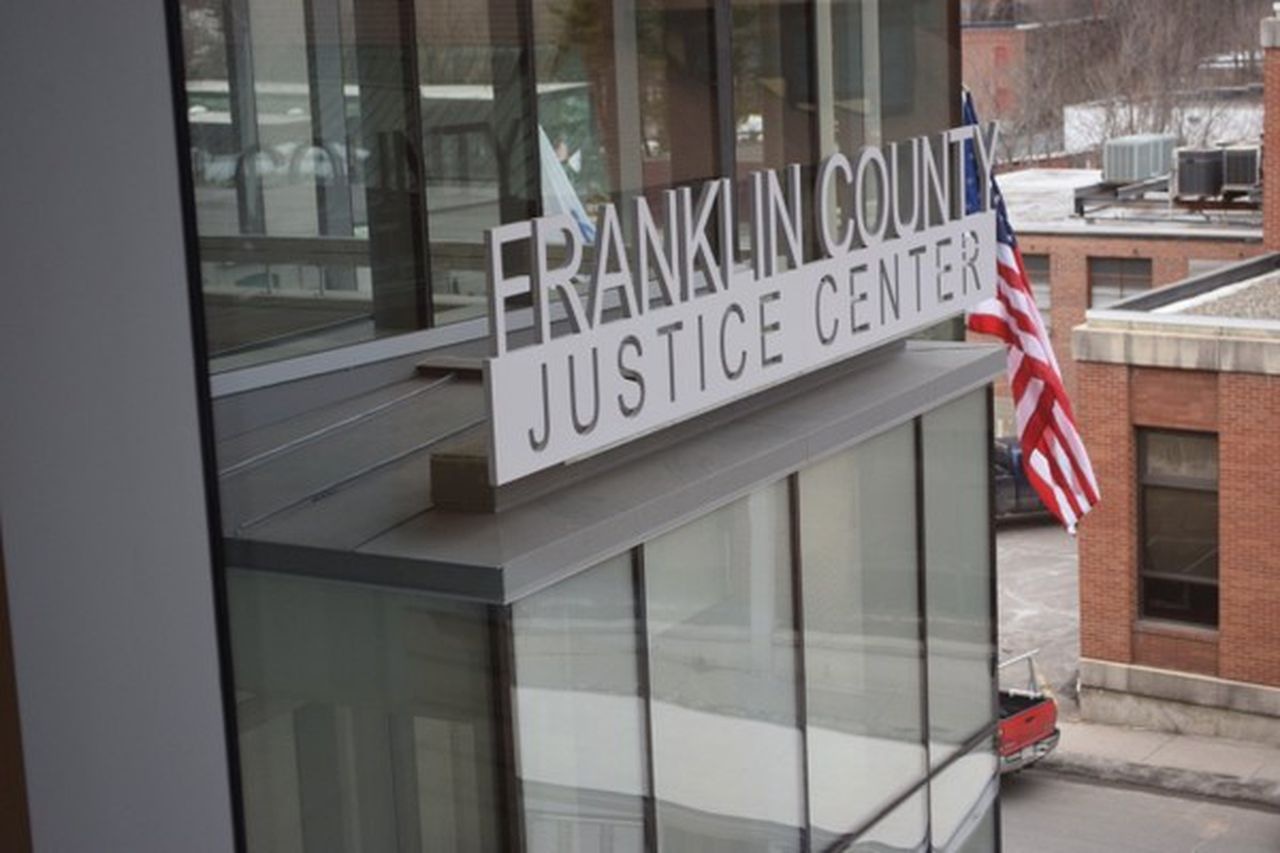
The nation’s new mental health hotline number, 9-8-8, is now one year old, but as Massachusetts legislators are still negotiating the 2024 fiscal budget, call centers are curious if the state’s new spending plan will still support their life-saving work.
Eileen Davis, the director of Call2Talk, a call center with locations in Framingham and Springfield, said it would be a shame if the state reduced funding for mental health services and slowed the momentum built as a result of the new hotline number.
“When you have different administrations and different parties and different legislators in different states, it’s always a concern for call centers, ‘will they be able to sustain what they’ve built?’” Davis said.
- Read More: 988 mental health line is officially live; Here’s where you’ll be connected to in Massachusetts
Last July, The National Suicide Prevention Lifeline’s 10-digit number switched to the easy-to-remember 9-8-8 number as a result of the passage of the National Suicide Hotline Designation Act of 2020.
During the previous fiscal year, mental health call centers received $17 million in funding from the state. The funding has enabled call centers to expand their staffing to manage the influx of calls they’ve received since the 9-8-8 number was introduced.
At Call2Talk, Davis said that the center’s call volume has doubled, going from 200 to 400 calls a month. The flurry of calls is part of a national trend that has occurred since the 9-8-8 hotline number went live. In the first year of the new shorter number, the hotline witnessed a 46% increase in calls.
People can also reach out to the hotline through online chat, available at the website of https://988lifeline.org/chat/, or by texting 9-8-8. Chat conversations have increased more than double, while texting has increased more than tenfold over the past year, according to Vibrant, the nonprofit organization that oversees the 9-8-8 hotline.
“A lot of the increased volume is that people are reaching out sooner, which is great,” Davis said. “So the more people that know about us, the more people call and feel supported before they’re in an escalated emotional state.”
Congressman Seth Moulton, D-Mass., one of the first cosponsors of the legislation that introduced the 9-8-8 number, said that he’s concerned that budget delays may result in less funding for call centers in the state.
“In the case of 9-8-8, you can see in real numbers the impact that budgets have on lives,” Moulton said. “If wait times start going up, people drop off. If the line is not publicized enough for more people to know about it, then people won’t call. So this is a clear place where government funding translates directly into life savings.”
Moulton said he’d worked to secure more federal funding for the 9-8-8 hotline. Last year, he co-sponsored a bill written by Rep. Tony Cárdenas (D-Calif.), aimed at increasing funds for the national hotline.
At the state level, call centers are asking for funds to be on par with the fiscal 2023 budget while legislators work on the final spending plan for the coming fiscal year, according to Jennifer Kelliher, the managing director of the Massachusetts Coalition for Suicide Prevention.
The Coalition, which gathers stakeholders from across the state to request a unified amount of government funding, hopes for another $17 million in the coming fiscal year. If the budget doesn’t meet their expectations, they’re counting on a supplementary budget to provide the extra funds they need.
But overall, without proper funding, “potentially people who need help and are reaching out wouldn’t be able to get it, which would be very unfortunate,” Kelliher said.
Kacy Maitland, the chief clinical officer of Samaritans, a call center based in Boston, said she remains hopeful that her organization will continue to get funding consistent with last year’s amount.
In the past, the call center consistently struggled with the high costs of training, which limited the number of people they could train every few months. Through the help of government funds, they hope to double their training capacity.
“I know that even before 9-8-8, there was a commitment to answering the call,” said Maitland. “In order for all of the centers to do that, we all need to expand our internal operations, hire more people, hire more training people, right? Because it’s not just folks just answering the calls all day, it’s also the administrative work that happens in the background. So I’m really hopeful that that’s going to happen.”
As for now, call centers will have to wait for both the House and Senate to agree on a workable spending plan before they can make bigger moves.
“[There] was a lot of energy and enthusiasm for resources and financial support to the call centers to prepare for launch,” Davis said. “So I just hope that future budgets have that in their budgets so that we can continue.”





